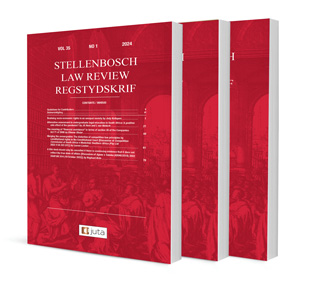Clearing the interpretative air – The need to make good (air quality) law and to make good law work

Clearing the interpretative air – The need to make good (air quality) law and to make good law work
Author: Jenny Hall
ISSN: 1996-2193
Affiliations: BA LLB LLM PhD
Source: Stellenbosch Law Review, Volume 35 Issue 2, 2024, p. 144-177
https://doi.org/10.47348/SLR/2024/i2a3
Abstract
A corollary of the environmental rule of law requirement that good laws must be passed is that these laws must also be implemented effectively. Effective implementation frequently relies on good bureaucratic decision-making which can be challenging where decisions are non-routine and complex. This challenge is evident in the practical application of so-called “listed activities”, a widely used approach in pollution and waste management regulation to trigger an obligation to obtain an environmental authorisation or licence to undertake the listed activity. When courts hear disputes on the design and implementation of these listed activities, they can play a valuable role in providing guidance on sound decision-making approaches, and course-correcting existing approaches if necessary. For the court’s impact to be realised optimally, however, it is important that judicial decision making itself is based on sound reasoning and that it contains an element of predictability which follows from the employment of a consistent approach to legislative interpretation. For the interpretation of environmental legislation, this contribution proposes a reframing of the purposive interpretative approach set out in the much-cited Natal Joint Municipal Pension Fund v Endumeni Municipality 2012 4 SA 593 (SCA) that aims to achieve what I call ‘substantive ecological purposivism’. It examines three judgments on listed activities passed in terms of the National Environmental Management: Air Quality Act 39 of 2004 through the lens of this approach and points out both inconsistencies in the three judgments as well as how the decisions in some instances could have been more closely aligned with the environmental objectives of legislation if the systematic employment of a substantively ecological purposive approach had been adopted.